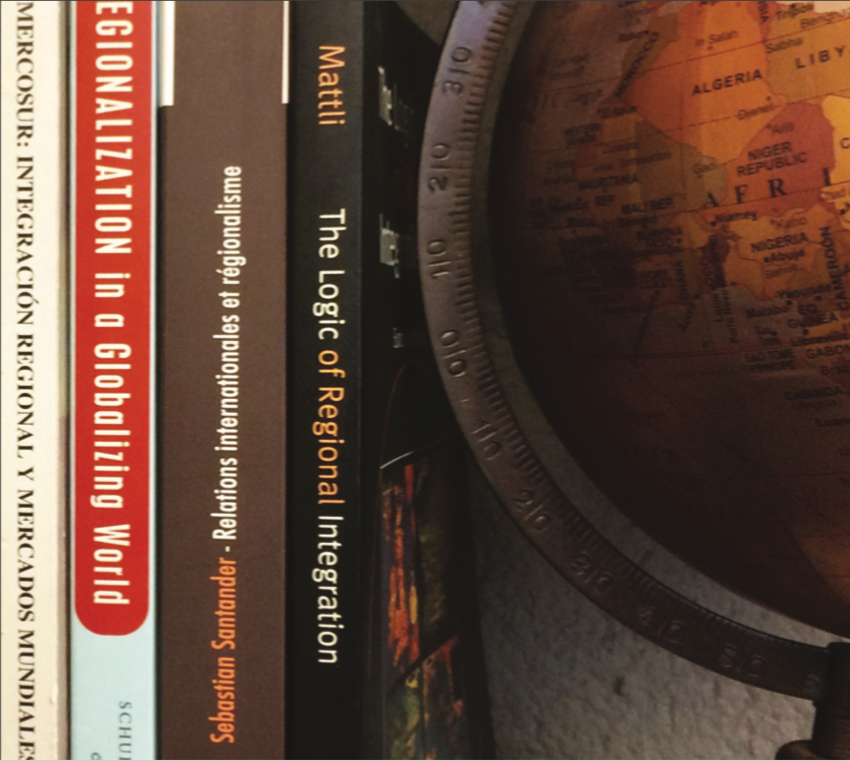[English below]
Consignes aux auteurs
Tous les articles doivent être originaux et rédigés en anglais ou en français. Ils ne peuvent pas être envoyés à une autre revue durant tout le processus d'évaluation.
La longueur des textes doit être entre 6000-8000 mots. Cette limite de mots comprend les figures/tableaux/graphiques. Elle exclue toutefois le résumé, l’affiliation, la biographie, les notes de bas de page et la bibliographie.
Modèle de citation type Harvard.
Les textes doivent être présentés en caractère Times New Roman, 12 ; à interligne 1,5 ligne ; justifié.
Les textes doivent inclure : un résumé de 250 mots ; 3 mots-clés ; l’affiliation de l’auteur (statut, centre de recherche, université) ; biographie de l’auteur de 150 mots.
Merci de faire parvenir votre contribution à l’adresse suivante : jcrd@uliege.be
L’équipe de la revue accusera alors réception du manuscrit et le soumettra à l’évaluation. En ce qui concerne la procédure d’évaluation, deux experts seront mandatés pour procéder anonymement à l’évaluation de votre contribution, et ce, comme suit :
- en cas d’avis concordants des experts précisant que votre article est « recevable avec/sans modification », nous vous ferons parvenir la mention des experts et vous demanderons de nous transmettre la version finale à la date susmentionnée ;
- en cas d’avis divergents des deux experts, nous demanderons l’évaluation d’un troisième expert ;
- en cas d’avis concordants des experts précisant que votre article est « non recevable », nous serons dans l’obligation de refuser la publication de votre article.
Veuillez noter que tous les articles seront soumis à un programme anti-plagiat afin de garantir leur originalité.
Possibilité de proposer un numéro spécial
La revue publie également des numéros spéciaux. Les personnes intéressées peuvent coordonner un numéro spécial sur une thématique donnée. Ce numéro doit compter entre cinq et sept articles ainsi qu’une ou deux recensions. En cas d’acceptation, celle/celui qui coordonne le numéro spécial doit assurer par lui-même/elle-même le processus d’évaluation (voir ci-dessus la procédure).
Références bibliographiques
Les références bibliographiques doivent être incorporées dans le texte en utilisant le système suivant : auteur-date-page. Par exemple : (Nye, 2002, p. 9).
Les références doivent être classées par ordre alphabétique à la fin du manuscrit.
Toutes les références doivent être complètes et doivent figurer dans le texte.
Les références bibliographiques à la fin du manuscrit, avec tous les noms de famille / noms des institutions éditrices en petites capitales (PC: Ctrl+Maj+k - Mac : Cmd+Maj+k), doivent suivre le style suivant :
Livres
NYE Joseph S., The Paradox of American Power, New York, Oxford University Press, 2002.
Chapitres dans un ouvrage collectif
SANTANDER Sebastian, "Ordre mondial, hégémonie et puissances émergentes", in SANTANDER Sebastian (eds.), Puissances émergentes : un défi pour l’Europe ?, Paris, Ellipses Edition Marketing, 2012, pp. 9-25.
Ouvrages collectifs
SANTANDER Sebastian (eds.), Puissances émergentes : un défi pour l’Europe ?, Paris, Ellipses Edition Marketing, 2012.
Articles de revues scientifiques
MANNERS Ian, “Normative Power Europe: A Contradiction in Terms?”, Journal of Common Market Studies, 2002, vol. 40. n° 2, pp. 235-258.
Sites web
COUNCIL OF THE EUROPEAN UNION, "Infographic – EU economy", 2018, disponible à l'adresse suivante : https://www.consilium.europa.eu/en/infographics/eu-economy/ (consultée le 24 septembre 2020).
Documents officiels
EUROPEAN COMMISSION, "A Budget for Europe 2020", Communication from the Commission to the European Parliament, the Council, the European Economic and Social Committee and the Committee of the Regions, Brussels, 29.6.2011, COM(2011) 500 final Part I, 2011, pp. 1-25.
Rédaction de recensions de livres
Chaque numéro du Journal of Cross-Regional Dialogues (JCRD)/Revue de dialogues inter-régionaux (RDIR) comprend une section de recension de livres. Cette section a pour objectif de fournir aux lecteurs une évaluation des nouvelles publications sur les relations internationales.
---
Instructions for authors
All articles must be original and written in English or French. They may not be sent to another journal during the evaluation process.
The length of the texts must be between 6000-8000 words. This word limit includes figures/ tables/graphs. However, it excludes abstract, affiliation, biography, footnotes and bibliography.
Model quote type Harvard.
The texts must be presented in Times New Roman, 12; 1.5 line spacing; justified.
The texts must include: a 250 word abstract; 3 keywords; the affiliation of the author (status, research center, university); biography of the author of 150 words.
Please send your contribution to the following address: jcrd@uliege.be
The review team will then admit receipt of the manuscript and submit it for evaluation. As for the evaluation procedure, two experts will be mandated to anonymously evaluate your contribution, as follows:
- in case of concordant expert’s opinion that your article is ‘admissible with/without modification’, we will send you the mention of the experts directly and ask you to send us the final version on the aforementioned date;
- in case of diverging opinions of the two experts, we will ask for the evaluation of a third expert;
- in case of concordant expert opinion that your article is ‘unacceptable’, we will unfortunately be obliged to refuse the publication of your article.
Please be advised that all articles will under scrutiny through an anti-plagiarism program to enure originality.
Possibility to propose a special issue
The journal also publishes special issues. Those interested can edit a special issue on a given theme. This issue should have between five and seven articles and one or two book reviews. If accepted, the editor of the special issue must carry out the evaluation process himself/herself (see procedure above).
Bibliographical references
Bibliographic references must be incorporated into the text using the following system: author-date-page. For example: (Nye, 2002, p. 9).
References should be listed in alphabetical order at the end of the manuscript.
All references must be complete and must appear in the text.
Bibliographical references at the end of the manuscript, with all family names / name(s) of publishing institution(s) in small capitals (PC: Ctrl+Shift+k - Mac: Cmd+Shift+k), must follow the following style:
Books
NYE Joseph S., The Paradox of American Power, New York, Oxford University Press, 2002.
Chapters in edited books
SANTANDER Sebastian, "Ordre mondial, hégémonie et puissances émergentes", in SANTANDER Sebastian (eds.), Puissances émergentes : un défi pour l’Europe ?, Paris, Ellipses Edition Marketing, 2012, pp. 9-25.
Edited books
SANTANDER Sebastian (eds.), Puissances émergentes : un défi pour l’Europe ?, Paris, Ellipses Edition Marketing, 2012.
Articles of scientific journals
MANNERS Ian, “Normative Power Europe: A Contradiction in Terms?”, Journal of Common Market Studies, 2002, vol. 40. n° 2, pp. 235-258.
Websites
COUNCIL OF THE EUROPEAN UNION, "Infographic – EU economy", 2018, disponible à l'adresse suivante : https://www.consilium.europa.eu/en/infographics/eu-economy/ (consultée le 24 septembre 2020).
Official documents
EUROPEAN COMMISSION, "A Budget for Europe 2020", Communication from the Commission to the European Parliament, the Council, the European Economic and Social Committee and the Committee of the Regions, Brussels, 29.6.2011, COM(2011) 500 final Part I, 2011, pp. 1-25.
Writing Book Reviews
Each issue of Journal of Cross-Regional Dialogues (JCRD)/Revue de dialogues inter-régionaux (RDIR) includes a book review section. This section aims to provide readers with an updated critical assessment of new publications on European and regional integration, as well as international relations.



